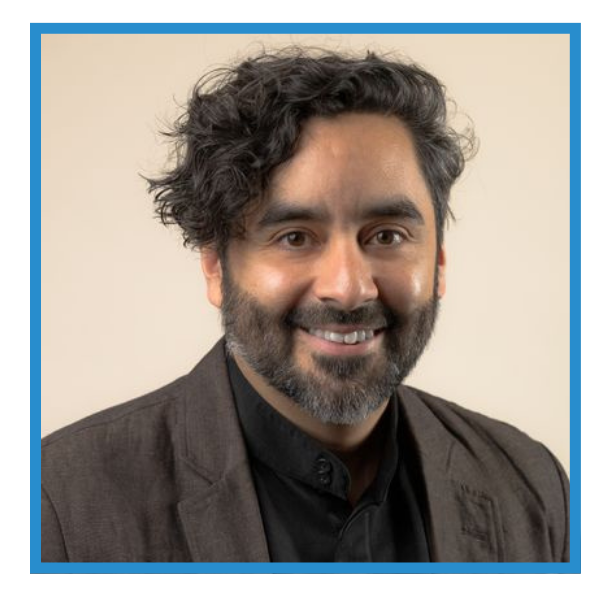Leadership Members
 Jennifer Weuve
Jennifer Weuve
Dr. Jennifer Weuve is a Professor in the Department of Epidemiology at the Boston University School of Public Health. In her research, she seeks to identify causes of dementia, particularly the role of exposures to environmental toxicants in dementia etiology, along with how these exposures intersect with social determinants of dementia. She is the PI or co-investigator of several NIH-funded epidemiologic investigations on these questions. She is also the PI of the R13 grant supporting MELODEM and has the privilege of providing methodologic guidance on a wide range of studies of neurodegenerative outcomes. Dr. Weuve earned her MPH degree in epidemiology from the University of Minnesota and her doctoral degree from the Harvard TH Chan School of Public Health.

Maria Glymour
Dr. Maria Glymour is a Professor and Chair of the Department of Epidemiology at Boston University School of Public Health. Her research focuses on how social factors experienced across the lifecourse, from infancy to adulthood, influence cognitive aging, Alzheimer’s disease and other causes of dementia, stroke, and other health outcomes in old age. Dr. Glymour is especially interested in education and other exposures amenable to policy interventions. A separate theme of her research focuses on overcoming methodological problems encountered in analyses of social determinants of health, Alzheimer’s disease, and dementia. For many reasons, research focusing on lifecourse epidemiology as well as cognitive aging introduces substantial methodological challenges. Sometimes, these are conceptual challenges, and clear causal thinking can help. She co-founded MELODEM in 2012.

Carole Dufouil
Carole Dufouil is a research director at INSERM Center 1219 (Bordeaux Population Health Research Center) and co-director of the PHARes (Population Health trAnslational Research). She is co-PI of the 3-City Dijon cohort and the MEMENTO cohort, a French clinical cohort incorporating multi-modal imaging and fluid biomarkers to understand the natural course of AD. Dr. Dufouil’s career has centered on improving methods in research on prevention, diagnosis, and treatment of AD. She conceptualized, co-founded, and defined the critical elements for the success of MELODEM in 2012.
Miguel Arce
Miguel Arce Renteriìa, PhD, is an Assistant Professor of Neuropsychology at the Taub Institute for Research on Alzheimer’s Disease and the Aging Brain and the Department of Neurology at the Columbia University Medical Center. His research focuses on determining factors of reserve and resilience to cognitive aging and Alzheimer’s disease and related dementias (ADRD) among racial/ethnic minorities both within the United States and abroad with an emphasis on understanding the role of bilingualism. Dr. Arce is also involved in outreach efforts to engage with diverse communities in ADRD research. He is the director of the Outreach, Recruitment and Engagement (ORE) Core for Columbia University’s Alzheimer’s Disease Research Center (ADRC) and a member of the ORE Core National Steering Committee for the National Alzheimer’s Coordinating Center (NACC).
Andrea Gilmore Bykovskyi
Andrea Gilmore-Bykovskyi, PhD, RN, is Associate Professor and Associate Vice Chair of Research in the BerbeeWalsh Department of Emergency Medicine at the University of Wisconsin School of Medicine and Public Health. She also serves as Co-Lead for the University of Wisconsin Alzheimer’s Disease Research Center (ADRC) Care Research Core. Dr. Gilmore-Bykovskyi leads a program of research that aims to advance effective, meaningful, and equitable care for Persons Living with Dementia (PLWD). Much of her research has addressed structural and health systems barriers to optimal care for PLWD and their caregivers, particularly during challenging points in the health and care continuum including acute and serious illness and during transitions in care. Her current work focuses on identifying and characterizing episodes of lucidity in individuals with advanced dementia near the end of life. She is committed to engaging with community and clinician partners and working directly with PLWD and their caregivers to fully integrate their perspectives into the research process and results. Dr. Gilmore-Bykovskyi recently served as the Co-Chair for the Scientific Steering Committee of the 2023 NIH/NIA National Dementia Care and Caregiving Research Summit.
Suzanne Judd
Dr. Suzanne Judd is the Director of the Lister Hill Center for Health Policy and a Professor in the School of Public Health at the University of Alabama at Birmingham. She received her PhD in Nutrition Sciences and MPH in Epidemiology from Emory University where she led two vitamin D clinical trials. Dr. Judd is multiple PI on both the REGARDS and RURAL cohort studies which are large NIH funded epidemiological cohort studies seeking to understand disparities in chronic disease in the United States. Her experience in the US provided a platform to collaborate with European cohort studies in France through the Fulbright Scholar Program. Dr. Judd’s research focuses on the role of diet and the environment as mediators of racial disparities in brain health.
 Renaud La Joie
Renaud La Joie
Renaud La Joie [Ren-no Lah Jwah] originally trained in Neuroscience, Neuropsychology, and Neuroimaging in France before moving to California for his post-doctoral fellowship at UC Berkeley and then at UCSF. In his research, he combines multimodal neuroimaging techniques, fluid biomarkers, and neuropsychological measures to study the natural history of Alzheimer’s disease and other age-associated neurodegenerative diseases. His overarching goal is to understand the drivers of clinical heterogeneity and improve our ability to provide patients with a precise diagnosis and prognosis. He has established strong collaborations with neuropathologists to help bridge in vivo and post-mortem measures of brain pathology and guide a rigorous interpretation of in vivo biomarker data.
Elizabeth Rose Mayeda
Elizabeth Rose Mayeda is an Associate Professor in the Department of Epidemiology at the UCLA Fielding School of Public Health. Dr. Mayeda’s research focuses on identifying modifiable determinants of cognitive decline, dementia, and stroke in late life. Her research program has both applied and methodological themes. She focuses on describing and identifying mechanisms contributing to disparities in late-life cognitive and brain health and also leads work addressing methodological challenges in longitudinal studies of stroke, cognitive aging, and dementia risk. Her long-term research goals are to: (1) identify effective population-level strategies to prevent dementia and eliminate disparities in dementia and (2) develop research tools to strengthen causal inference in dementia research and lifecourse epidemiology.
Cécile Proust-Lima
Dr. Cécile Proust-Lima is a Director of Research in Biostatistics at the Bordeaux Population Health Research Center (Inserm, Univ. Bordeaux, France). Her research mainly focuses on the development of dynamic statistical models to describe, explain and predict chronic disease progression. She has specialized over the years in the joint analysis of correlated longitudinal markers and event time history with applications notably in neurodegenerative diseases. Her works, made available through open-source software, address epidemiological and clinical questions thanks to strong collaborations with epidemiologists and clinicians and access to large cohort studies.





